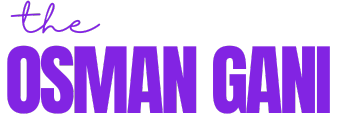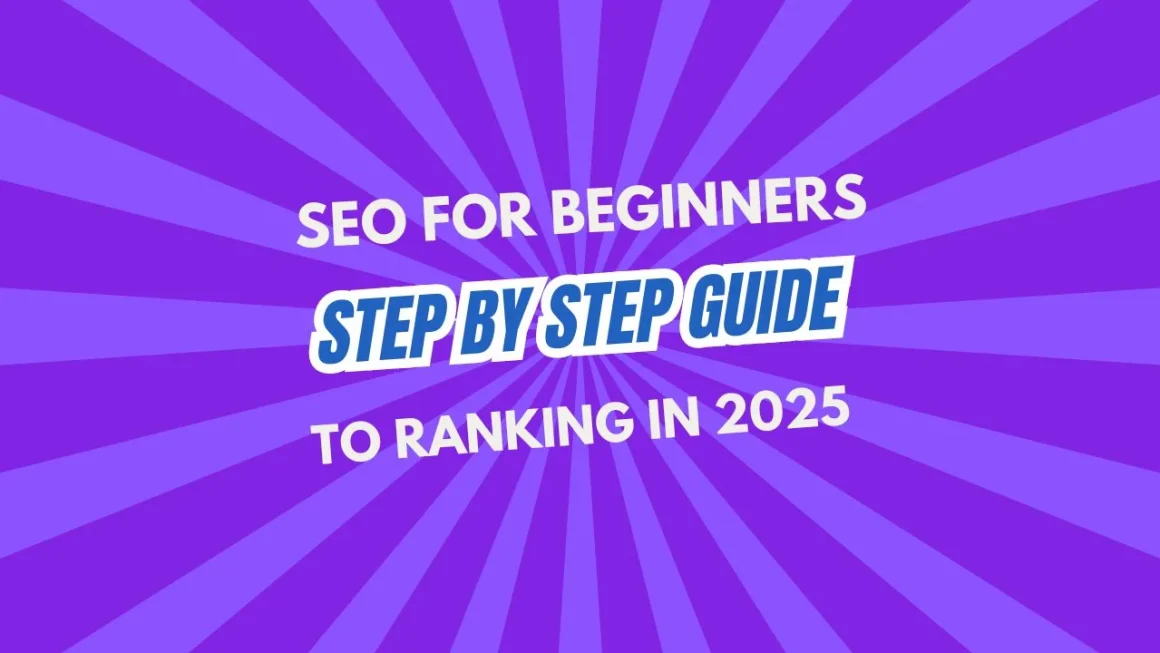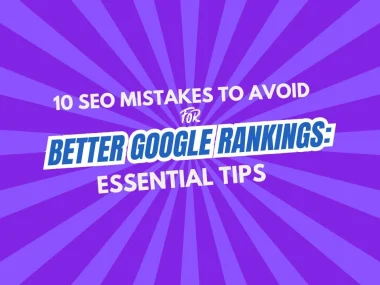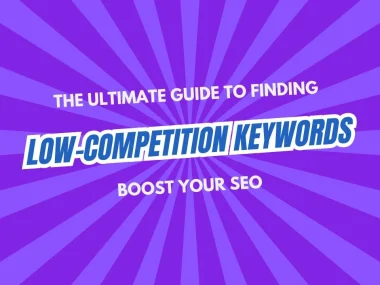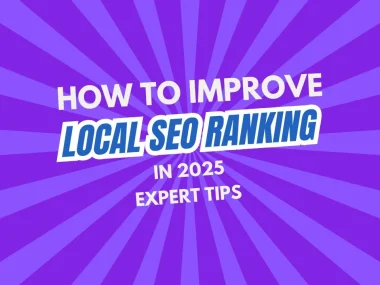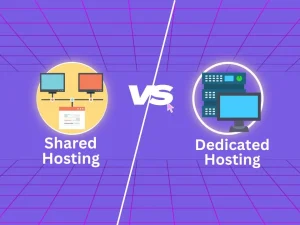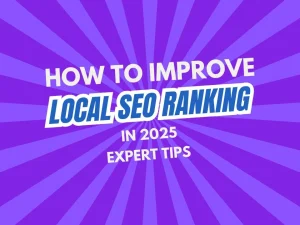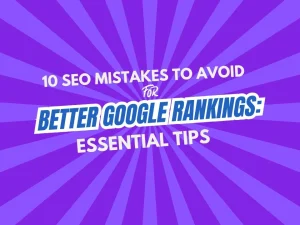To rank in 2025, focus on high-quality content and user experience. Optimize for voice search and mobile-first indexing.
SEO in 2025 requires a forward-thinking approach. Search engines continually evolve, emphasizing user intent and experience. As digital landscapes change, staying updated with trends is crucial. Voice search and mobile-first indexing play significant roles. High-quality, relevant content remains a cornerstone for ranking success.
Keywords must align with user search behaviors. Technical SEO ensures your site is crawlable and fast. Building authoritative backlinks enhances credibility. Local SEO helps small businesses reach nearby customers. Regularly monitor analytics to refine strategies. This guide breaks down essential steps for beginners, ensuring a solid foundation in modern SEO practices.
Keyword Research
Keyword research is the heart of any SEO strategy. It helps you find words and phrases that people use in search engines. These keywords guide your content creation and optimization efforts.
Choosing The Right Keywords
Start with a list of broad topics related to your business. Think about what your audience might search for. Write down those topics. Then, brainstorm specific keywords under each topic.
| Broad Topic | Specific Keywords |
|---|---|
| Digital Marketing | SEO tips, social media marketing, email campaigns |
| Healthy Living | organic food, fitness routines, mental health |
Once you have your list, consider the search intent. Are people looking for information, a solution, or a product? Choose keywords that match your content’s purpose.
Using Keyword Tools
Keyword tools help you find the best keywords for your content. They show you search volume, competition, and trends. Popular tools include Google Keyword Planner, SEMrush, and Ahrefs.
- Enter a broad topic into the tool.
- Review the suggested keywords.
- Check search volume and competition for each keyword.
- Select keywords with high volume and low competition.
Use long-tail keywords to target specific queries. These are phrases with three or more words. They are less competitive but more specific.
For example:
- Short-tail keyword: “SEO”
- Long-tail keyword: “SEO tips for small businesses”
Long-tail keywords can drive more targeted traffic to your site. They also improve your chances of ranking higher.
On-page Optimization
On-page optimization is essential for improving your website’s ranking. It involves optimizing various elements directly on your website. This helps search engines understand your content better.
Meta Tags And Descriptions
Meta tags and descriptions are crucial for SEO. They provide a summary of your content to search engines and users.
- Meta Title: The meta title should be unique and relevant. It must include the main keyword. Keep it under 60 characters.
- Meta Description: This should be a brief summary. It must be between 150-160 characters. Include the main keyword here too.
Below is an example of a meta tag:
Optimizing Content
Optimizing content ensures it is relevant and valuable. This helps it rank better. Follow these steps:
- Use the main keyword in the first 100 words.
- Break content into small paragraphs.
- Use header tags like
,
,
.
- Include internal and external links.
- Use bullet points for easy reading.
Ensure your content is easy to read. Use simple language and short sentences.
| Element | Optimization |
|---|---|
| Title | Include primary keyword, keep it under 60 characters. |
| Headers | Use relevant keywords, maintain hierarchy (H1, H2, H3). |
| Content | Write engaging and valuable information, use keywords naturally. |
Remember, quality content is key to on-page optimization. Aim to provide value to your readers while keeping SEO best practices in mind.
Technical SEO
Technical SEO is the backbone of a well-optimized website. It ensures your site is easy for search engines to crawl and index. In 2025, mastering technical SEO is crucial for achieving higher rankings. Below, we will explore two key aspects: Improving Site Speed and Mobile-Friendly Design.
Improving Site Speed
Site speed is a critical ranking factor. Users expect fast-loading websites. A slow site can lead to higher bounce rates and lower rankings. Here are some ways to improve site speed:
- Optimize Images: Use compressed images. This reduces load times.
- Leverage Browser Caching: Store static files in the user’s browser. This speeds up repeat visits.
- Minify CSS and JavaScript: Remove unnecessary characters from code. This improves load times.
Mobile Friendly Design
More people use mobile devices for browsing. Search engines prioritize mobile-friendly sites. Your site must be responsive and easy to navigate on small screens.
- Responsive Design: Use flexible layouts. Ensure your site adapts to various screen sizes.
- Touch-Friendly Navigation: Make buttons and links easy to tap. Avoid small or closely spaced elements.
- Fast Mobile Load Times: Optimize for mobile speeds. Use tools like Google’s Mobile-Friendly Test.
Ensuring your website is fast and mobile-friendly will significantly enhance your technical SEO. In 2025, these factors will be more important than ever.
Content Creation
Creating content is vital for SEO success. In 2025, quality content will drive traffic. It should be engaging, informative, and valuable. Let’s dive into how to create valuable content and use multimedia effectively.
Creating Valuable Content
Valuable content solves problems and answers questions. It keeps readers on your page longer. Use these tips to create valuable content:
- Understand Your Audience: Know who you are writing for. Use language that resonates with them.
- Keyword Research: Identify keywords your audience searches for. Use these keywords naturally in your content.
- Originality: Offer unique insights and information. Avoid copying content from other sources.
- Structure: Use headings, subheadings, and bullet points. This makes your content easy to read.
- Quality Over Quantity: Focus on high-quality content. Long, meaningful articles perform better than short, shallow ones.
Using Multimedia
Multimedia elements make your content more engaging. They also help with SEO. Here are some ways to use multimedia effectively:
- Images: Use relevant images to break up text. Ensure they are high quality and optimized for web.
- Videos: Embed videos to explain complex topics. Videos increase the time users spend on your page.
- Infographics: Use infographics to present data visually. They are easy to share and understand.
- Audio: Include podcasts or audio clips. This caters to users who prefer listening over reading.
Incorporating these elements can significantly improve user experience. It can also reduce bounce rates and increase dwell time. This boosts your SEO performance.
Link Building
Link building is essential for improving your website’s search engine rankings. It helps search engines understand your site’s credibility and authority. This section will guide you through effective link-building strategies.
Quality Backlinks
Quality backlinks are crucial for SEO success. They come from trusted and authoritative websites. These links signal to search engines that your site is valuable.
Here are some tips for obtaining quality backlinks:
- Focus on relevant websites in your niche.
- Create valuable and shareable content.
- Engage in online communities and forums.
- Reach out to industry influencers.
| Quality Backlink Sources | Description |
|---|---|
| Industry Blogs | Write guest posts for popular blogs in your field. |
| News Websites | Get featured in news articles related to your niche. |
| Educational Sites | Contribute research or case studies to educational portals. |
Guest Blogging
Guest blogging is a powerful way to build backlinks. It involves writing articles for other blogs in your industry. This strategy helps you reach new audiences and gain credibility.
To get started with guest blogging:
- Identify popular blogs in your niche.
- Research their guest posting guidelines.
- Pitch unique and valuable content ideas.
- Write high-quality and informative articles.
Guest blogging offers several benefits:
- Increases your site’s visibility.
- Builds relationships with other bloggers.
- Drives targeted traffic to your site.
- Enhances your online reputation.
Analytics And Tracking
Understanding Analytics and Tracking is crucial for SEO success. It helps you measure your site’s performance and make data-driven decisions. Without proper tracking, you cannot understand your site’s strengths and weaknesses.
Using Google Analytics
Google Analytics is a free tool that provides valuable insights. It shows how visitors interact with your website. To get started, you need to set up an account and add the tracking code to your website.
You can track various metrics such as:
- Page Views: The total number of pages viewed.
- Session Duration: How long visitors stay on your site.
- Bounce Rate: The percentage of visitors who leave after viewing one page.
- Traffic Sources: Where your visitors are coming from.
With Google Analytics, you can create custom reports. This feature helps in tracking specific goals and conversions.
Monitoring SEO Performance
To improve your SEO, you need to monitor your performance. This involves keeping an eye on key metrics and making adjustments as needed.
Use the following tools for effective monitoring:
- Google Search Console: Tracks your site’s search performance and issues.
- SEMrush: Offers comprehensive SEO tools for tracking rankings and backlinks.
- Ahrefs: Provides in-depth analysis of your website’s link profile and keywords.
Regularly review your site’s data. Look for trends and patterns. Identify which keywords are bringing in traffic. Focus on improving pages with high bounce rates.
By using these tools, you can stay informed and make necessary changes. This proactive approach ensures your site remains competitive in search rankings.
Future Trends In SEO
The world of SEO is always changing. Staying ahead of trends is crucial. In 2025, several key trends will shape SEO. Understanding these trends will help you rank better.
Voice Search Optimization
Voice search is growing rapidly. More people use voice assistants like Alexa and Siri. Optimizing for voice search is essential.
- Use natural language in your content.
- Focus on long-tail keywords.
- Answer questions directly in your content.
Google’s algorithms are getting better at understanding speech. Make sure your website is ready for this shift.
AI And Machine Learning
AI and machine learning are becoming more important in SEO. Google uses AI to improve search results.
| AI Trend | Impact on SEO |
|---|---|
| RankBrain | Better understanding of user intent |
| BERT | Improved context of search queries |
To adapt, create high-quality, relevant content. Focus on user experience. AI will reward websites that offer value.
Machine learning helps search engines learn from data. They get better at predicting what users want. Stay updated with these technologies. They will shape the future of SEO.
Common SEO Mistakes
Understanding common SEO mistakes is crucial for beginners. By avoiding these errors, you can improve your site’s ranking. This section will cover key mistakes and how to avoid them.
Avoiding Black Hat Techniques
Black hat techniques can get your site penalized. These methods violate search engine guidelines.
- Keyword Stuffing: Overloading your content with keywords can hurt your ranking.
- Cloaking: Showing different content to search engines and users is misleading.
- Buying Links: Purchasing backlinks can lead to penalties from search engines.
Stick to ethical SEO practices. Focus on quality content and organic growth.
Staying Updated
SEO rules change frequently. Staying updated is essential for success.
- Follow SEO Blogs: Read reliable sources like Moz and Search Engine Journal.
- Attend Webinars: Join online SEO webinars and conferences.
- Use SEO Tools: Tools like Google Analytics can help you track changes.
Regular updates help you stay ahead. Keep learning to maintain your site’s ranking.
Frequently Asked Questions
What Is SEO And Why Is It Important?
SEO stands for Search Engine Optimization. It’s crucial because it improves your website’s visibility in search engines, driving more organic traffic and potential customers.
How Do I Start With SEO In 2025?
Begin by conducting keyword research. Optimize your website content, meta tags, and ensure mobile-friendliness. Focus on user experience and high-quality backlinks.
What Are The Latest SEO Trends For 2025?
Voice search optimization, AI-driven content, and mobile-first indexing are key trends. Prioritize user experience and high-quality, informative content.
How Does Mobile-first Indexing Affect SEO?
Mobile-first indexing means Google primarily uses the mobile version of your site for ranking. Ensure your site is mobile-friendly to improve SEO.
Conclusion
Mastering SEO in 2025 is crucial for online success. Follow this guide, and you’ll improve your website’s ranking. Consistency and patience are key. Stay updated with the latest trends and algorithm changes. With dedication, your efforts will pay off. Start optimizing today and watch your traffic grow.
